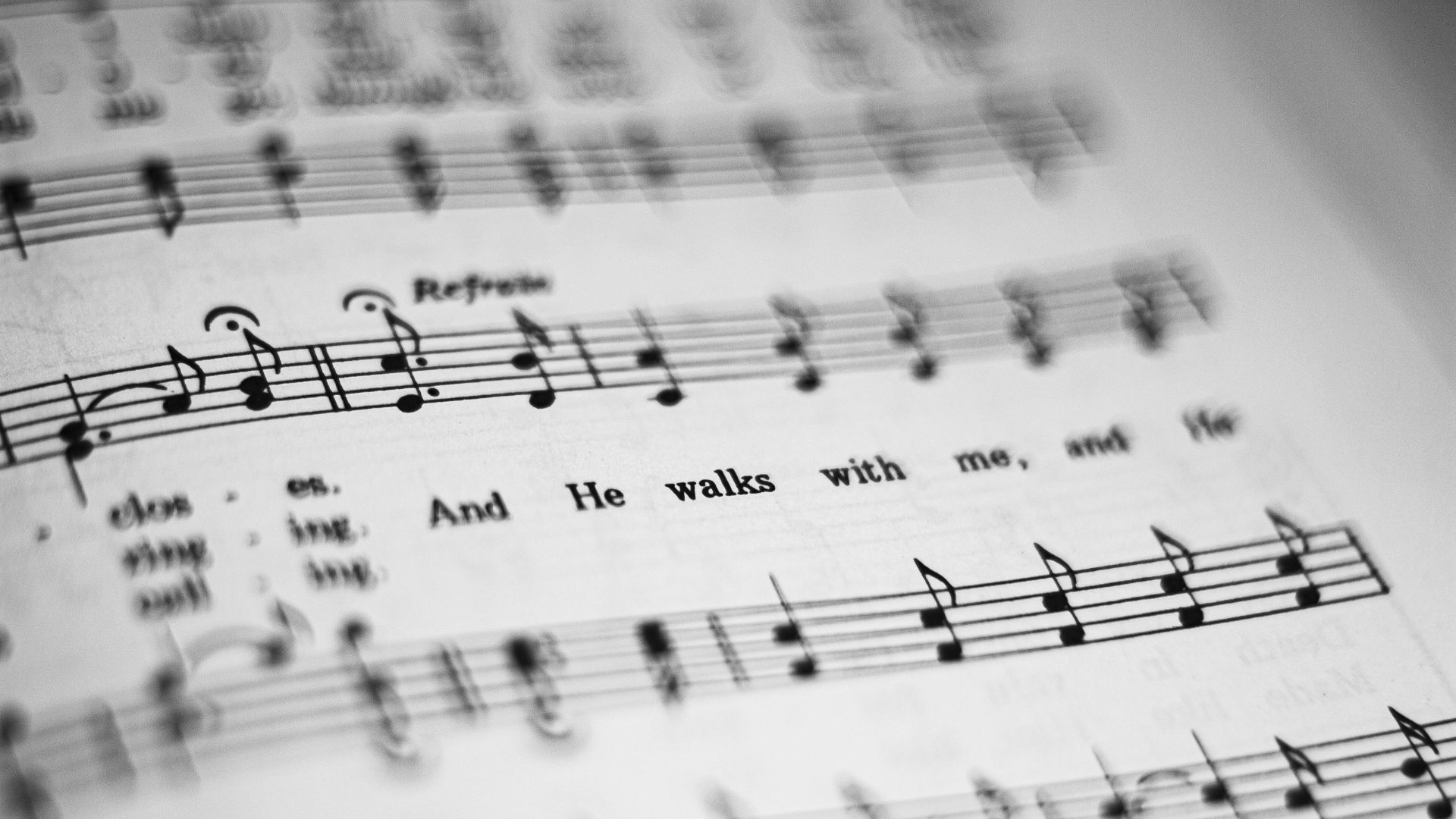7 inspiring poems for a funeral service or condolence card
Are you looking for funeral poems that have a hopeful feel? Take a look at 7 of our favourite readings.

Poetry is powerful. With a few choice words, a poet can make us think, reflect and feel all sorts of emotions.
A good poem can also help us process difficult emotions – especially when it comes to grief and bereavement. You'll find lots of poems online that deal with death and dying, often with a sombre or bittersweet note.
But in this guide, we're going to take a different approach. We'll look at seven poems about death that are more inspiring than sad. These pieces acknowledge the pain of bereavement while using it as a foundation on which to learn and grow.
You could read one of these poems at the funeral, write it in a condolence card or simply read it to yourself for comfort.
1. "Alive" by Winifred M. Letts
For most of us, losing a loved one is among the most upsetting and disruptive things we'll ever experience. But often, with time, this emotional jolt can lead to a new appreciation for life and the beauty of the world around us. Perhaps it's because the person's death reminds us that life is fragile and temporary – so we should try to make the most of every moment.
That's the overarching theme in "Alive" by Winifred M. Letts. The poem's narrator has come to accept their loved one's passing and now feels "alert" and ready to "delight [their] soul with many things". By the closing lines, they come to "praise Death" and the memory of their loved one for giving their life new meaning.
2. "A Song of Living" by Amelia Josephine Burr
Like "Alive", Amelia Josephine Burr's "A Song of Living" is a poem about living life to the fullest. This time, however, the roles are reversed. Instead of a bereaved person reacting to a loved one's passing, it's told from the perspective of a living person reflecting on their own eventual death.
As far as the narrator is concerned, they have nothing to fear about death because their life has been so full and rewarding. This point is emphasised with the repeated refrain, "Because I have loved live, I shall have no sorrow to die".

Because I have loved life, I shall have no sorrow to die.
I have sent up my gladness on wings, to be lost in the blue of the sky.
I have run and leaped with the rain, I have taken the wind to my breast.
My cheeks like a drowsy child to the face of the earth I have pressed.
Because I have loved life, I shall have no sorrow to die.
3. "Joy in Death" by Emily Dickinson
Emily Dickinson was an American poet who lived from 1830 to 1886. She was little appreciated while alive but is now considered one of the finest writers of her day.
Her "Joy in Death" is a Christian poem that strips bereavement back to a basic question. If the person who died is now in Heaven, Dickinson asks, shouldn't we be happy for them?
Here's an extract:
That bells should joyful ring to tell
A soul has gone to heaven,
Would seem to me the proper way
A good news should be given.
4. "Epitaph" by Merrit Malloy
The message behind "Epitaph" is that people die, but their love will live on so long as their kith and kin are around to share it.
"When I die", the narrator says, "give what's left of me away." They ask their loved ones to focus on the world around them – their friends, their relatives and their community. To give hugs, hold hands, cry for their brothers and find strength in their memory.
5. "To My Father" by Georgia Harkness
In a world obsessed with youth and beauty, ageing is often presented negatively. Growing old is something to be feared, forgotten or staved off with creams, cures and tinctures.
"To My Father" turns this notion on its head. In this powerful tribute poem, Georgia Harkness compares her father to a huge, old pine tree – strong, graceful and unafraid of life's surprises. For Harkness, to be old is to be wise and to command respect, just like that gentle old tree.

Indeed, when the tree eventually dies, it's remembered by all who pass the spot where it fell.
6. "Music, When Soft Voices Die (To --)" by Percy Bysshe Shelley
This is a celebrated 19th-century poem composed by the Romantic writer Percy Bysshe Shelley. Like many poems on this list, it explores the idea that love is too powerful to be quenched by death.
For Shelley, love is like music or the scent of flowers. Just as a beautiful song or fragrant odour can linger in the minds of those who experience them, so love can echo in the memories of the bereaved.
This is a very short poem with only two verses, so it would be a good choice for a condolence letter or card.
Music, when soft voices die,
Vibrates in the memory—
Odours, when sweet violets sicken,
Live within the sense they quicken.
Rose leaves, when the rose is dead,
Are heaped for the belovèd's bed;
And so thy thoughts, when thou art gone,
Love itself shall slumber on.
7. A funeral reading about the cosmos by Gerald D. Waxman
We're bending the rules a little here. This piece isn't so much a poem as a piece of prose – but with its stirring take on science, space and the nature of existence, it feels just as poetic as any sonnet or sestina.
The quote is too long to print in full. But the gist goes like this: we humans feel an ineffable tug towards the cosmos. We stare at the stars as we gaze into the ocean – as if searching for deeper meaning in its unknowable majesty. For the author, Gerald D. Waxman, this is because something in our DNA recognises that the molecules that make up our bodies were born in those very stars.
"We are star stuff," writes Waxman. "Keep looking up."
Treasured Moments is a UK-based team that creates beautiful, bespoke tribute websites. Are you organising a funeral and need advice or inspiration? Explore more funeral planning guides.











